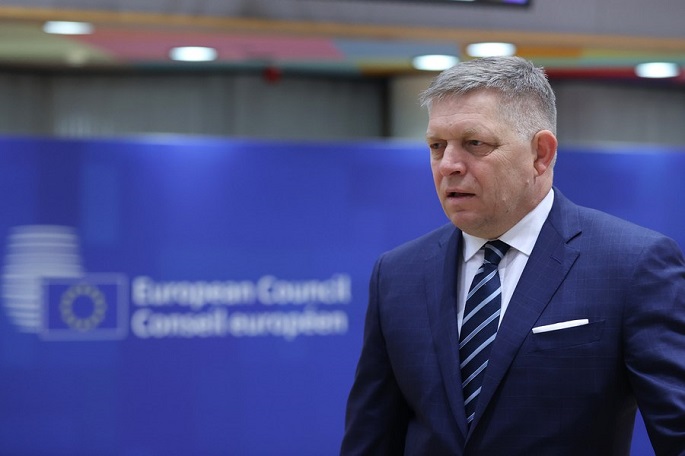Slovakia, Hungary seek to resolve oil transit dispute with Ukraine
Published : 27 Jul 2024, 01:28
Slovakia and Hungary have sought to resolve a dispute with Ukraine over its recent decision to block the transit of oil supplies from the Russian company Lukoil to the two European Union (EU) member states, reported Xinhua.
In a telephone conversation on Friday, Slovakia's Prime Minister Robert Fico proposed a technical solution to his Ukrainian counterpart Denys Shmyhal, regarding the Lukoil oil transit via Ukraine.
Fico's office said the proposed scheme would require the participation of several countries, including Slovakia, and noted that it is crucial for Bratislava-based refiner Slovnaft that the transit of at least a part of the Russian oil supplies be resumed, as alternative sources of oil are more expensive and may not be suitable from the technological point of view.
Intensive negotiations are expected to take place at the highest political and technical levels in the coming hours and days.
Meanwhile, Hungary has also been exploring options to resolve the oil transit dispute.
"If the situation is not resolved, there will be a fuel shortage," Gergely Gulyas, minister in charge of the Hungarian Prime Minister's Office, told a press conference on Friday. He added that there was no reason to panic given the high oil stock levels, but the situation needed to be resolved by September.
"One solution is for Ukraine to admit that it cannot do this to two EU member states," he said. "Another solution is for the European Commission to help us, and the third is that we find a legal loophole that will allow (Russian) oil to be transported by someone who is not subject to sanctions."
The EU in 2022 passed sanctions on the import of Russian oil into the bloc in response to the Russia-Ukraine conflict. However, a temporary exemption was granted to Slovakia, Hungary and the Czech Republic to allow them time to find other crude sources.
Slovakia's Economy Ministry said last week that oil deliveries from Russian company Lukoil had stopped flowing to the country via Ukraine following the company's inclusion on a Ukrainian sanctions list in June. The move has affected Slovnaft.
The two EU countries on Monday asked the European Commission (EC) to urgently intervene in the dispute on their behalf.
According to Slovak Foreign and European Affairs Minister Juraj Blanar and his Hungarian counterpart, Peter Szijjarto, Ukraine's move violates the EU-Ukraine association agreement.
"The European Commission is supposed to act as a guardian of the treaties and to ensure compliance with EU law, which Ukraine as an associated country is also obliged to follow. We therefore consider it to be essential that the Commission should act immediately in this case," Blanar said in a statement on Monday.
According to Blanar, the EU sanctions against Russia, which Slovakia has opposed several times, have once again proven to have a greater negative impact on Slovakia and the EU than on Russia. "The Slovak Republic has an exemption for Russian oil imports until the end of the year," he said, adding that "the Ukrainian side has made it impossible to apply this exemption."
Blanar said on social media Wednesday that the EC would delay intervention until it had more information on the matter. "I urge the European Commission not to waste time and to side with the (EU) member states and, most importantly, their citizens, the citizens of Slovakia and Hungary, as soon as possible," he said.
On the same day, Slovak President Peter Pellegrini said his country might take retaliatory measures against Ukraine as its decision to halt Lukoil oil transit to Slovakia and Hungary undermines good neighborly relations between the countries.
While the EC is "gathering information" on the dispute, Slovakia and Hungary have agreed to "continue to coordinate our actions in relation to the EC," Blanar said Friday following a phone call with Szijjarto.
"The European Commission must first and foremost represent the interests of the EU member states. If two countries are affected by Ukraine's violation of the association agreement, we would expect willingness to provide help on the Commission's side all the more," Blanar said.


